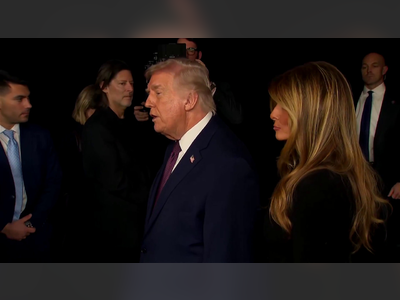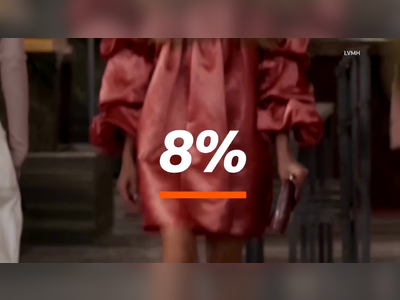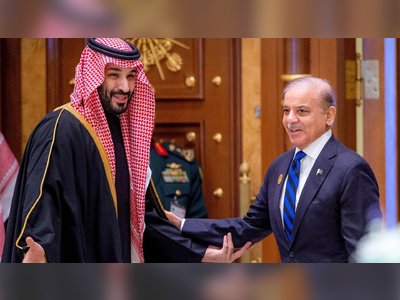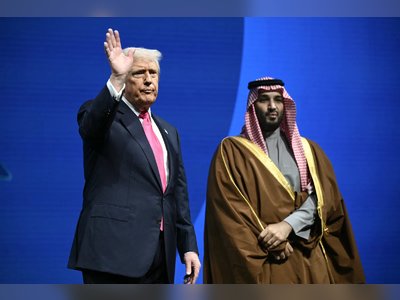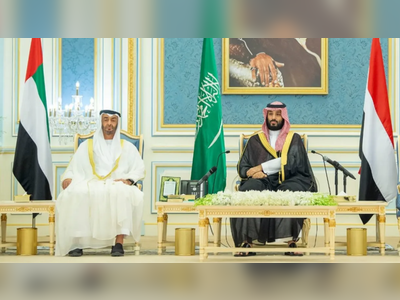End of an Era: Russian Gas Transit Through Ukraine Ceases
The halt marks the conclusion of decades of Russian dominance in Europe’s energy supply amid geopolitical shifts and a restructured European gas market.
The New Year brought a significant shift in Europe’s energy landscape as Russian gas exports through Ukraine's Soviet-era pipelines officially ceased.
This development ends decades of Moscow’s energy dominance in Europe, a relationship that persisted even through nearly three years of war.
Gazprom, Russia’s state-controlled gas company, confirmed that gas transit stopped at 5:00 AM GMT on January 1 after Ukraine refused to renew the transit agreement.
Preparedness Mitigates Consumer Impact
The halt, long anticipated by European governments, is not expected to disrupt gas supplies or consumer prices within the European Union.
Unlike the energy crisis of 2022—when reduced Russian gas flows triggered record-high prices, exacerbating the cost-of-living crisis—the EU has diversified its energy sources.
Alternative suppliers, such as Norway and liquefied natural gas (LNG) imports from Qatar and the United States, have significantly reduced dependence on Russian energy.
The European Commission assured citizens that infrastructure enhancements since 2022, including expanded LNG import capacity, allow for a seamless transition to non-Russian gas.
Slovakia and Austria, the last remaining EU buyers of Russian gas transiting Ukraine, have already secured alternative supplies.
Hungary will continue to receive Russian gas through the TurkStream pipeline under the Black Sea.
Regional and Economic Impacts
The cessation of transit has immediate consequences for regions reliant on Russian gas.
Transdniestria, a pro-Russian breakaway region in Moldova, halted heating and hot water services due to the disruption.
Local authorities urged residents to adopt energy-saving measures, such as using electric heaters and insulating homes.
Ukraine stands to lose up to one billion dollars annually in transit fees, a financial void it plans to address by quadrupling domestic gas transmission tariffs.
This measure is projected to cost Ukrainian industries over thirty-eight million dollars annually.
Meanwhile, Gazprom is expected to forgo nearly five billion dollars in revenue from gas sales due to the halted transit.
Decline of Russian Influence
At its peak, Russian gas accounted for approximately 35 percent of Europe’s energy supply, a dominance cultivated over half a century.
However, the EU has drastically reduced this dependency since Russia's invasion of Ukraine in 2022.
Nord Stream, a major pipeline running under the Baltic Sea, was sabotaged in 2022, while the Yamal-Europe pipeline via Belarus has also ceased operations.
By 2023, Russian gas exports through Ukraine had fallen to 15 billion cubic meters, a sharp decline from the 65 billion cubic meters transited annually under a five-year contract beginning in 2020.
Ukrainian Perspective
Ukraine’s Energy Minister, German Galushchenko, hailed the transit halt as a historic milestone, framing it as a strategic win for Europe’s energy independence and a blow to Russia’s economic and geopolitical influence.
'We stopped the transit of Russian gas.
This is a historic event.
Russia is losing its markets, it will suffer financial losses,' Galushchenko stated.
Reshaped Energy Market
Europe’s shift away from Russian gas signifies a restructured energy market, with increased emphasis on diversified supply chains and energy security.
While the halt in transit underscores the geopolitical divide, it also highlights the EU's resilience and adaptive strategies in the face of energy challenges.
As Europe continues to pivot towards alternative energy sources, the cessation of Russian gas transit marks the end of a chapter and the beginning of a new era in the region’s energy dynamics.
This development ends decades of Moscow’s energy dominance in Europe, a relationship that persisted even through nearly three years of war.
Gazprom, Russia’s state-controlled gas company, confirmed that gas transit stopped at 5:00 AM GMT on January 1 after Ukraine refused to renew the transit agreement.
Preparedness Mitigates Consumer Impact
The halt, long anticipated by European governments, is not expected to disrupt gas supplies or consumer prices within the European Union.
Unlike the energy crisis of 2022—when reduced Russian gas flows triggered record-high prices, exacerbating the cost-of-living crisis—the EU has diversified its energy sources.
Alternative suppliers, such as Norway and liquefied natural gas (LNG) imports from Qatar and the United States, have significantly reduced dependence on Russian energy.
The European Commission assured citizens that infrastructure enhancements since 2022, including expanded LNG import capacity, allow for a seamless transition to non-Russian gas.
Slovakia and Austria, the last remaining EU buyers of Russian gas transiting Ukraine, have already secured alternative supplies.
Hungary will continue to receive Russian gas through the TurkStream pipeline under the Black Sea.
Regional and Economic Impacts
The cessation of transit has immediate consequences for regions reliant on Russian gas.
Transdniestria, a pro-Russian breakaway region in Moldova, halted heating and hot water services due to the disruption.
Local authorities urged residents to adopt energy-saving measures, such as using electric heaters and insulating homes.
Ukraine stands to lose up to one billion dollars annually in transit fees, a financial void it plans to address by quadrupling domestic gas transmission tariffs.
This measure is projected to cost Ukrainian industries over thirty-eight million dollars annually.
Meanwhile, Gazprom is expected to forgo nearly five billion dollars in revenue from gas sales due to the halted transit.
Decline of Russian Influence
At its peak, Russian gas accounted for approximately 35 percent of Europe’s energy supply, a dominance cultivated over half a century.
However, the EU has drastically reduced this dependency since Russia's invasion of Ukraine in 2022.
Nord Stream, a major pipeline running under the Baltic Sea, was sabotaged in 2022, while the Yamal-Europe pipeline via Belarus has also ceased operations.
By 2023, Russian gas exports through Ukraine had fallen to 15 billion cubic meters, a sharp decline from the 65 billion cubic meters transited annually under a five-year contract beginning in 2020.
Ukrainian Perspective
Ukraine’s Energy Minister, German Galushchenko, hailed the transit halt as a historic milestone, framing it as a strategic win for Europe’s energy independence and a blow to Russia’s economic and geopolitical influence.
'We stopped the transit of Russian gas.
This is a historic event.
Russia is losing its markets, it will suffer financial losses,' Galushchenko stated.
Reshaped Energy Market
Europe’s shift away from Russian gas signifies a restructured energy market, with increased emphasis on diversified supply chains and energy security.
While the halt in transit underscores the geopolitical divide, it also highlights the EU's resilience and adaptive strategies in the face of energy challenges.
As Europe continues to pivot towards alternative energy sources, the cessation of Russian gas transit marks the end of a chapter and the beginning of a new era in the region’s energy dynamics.
